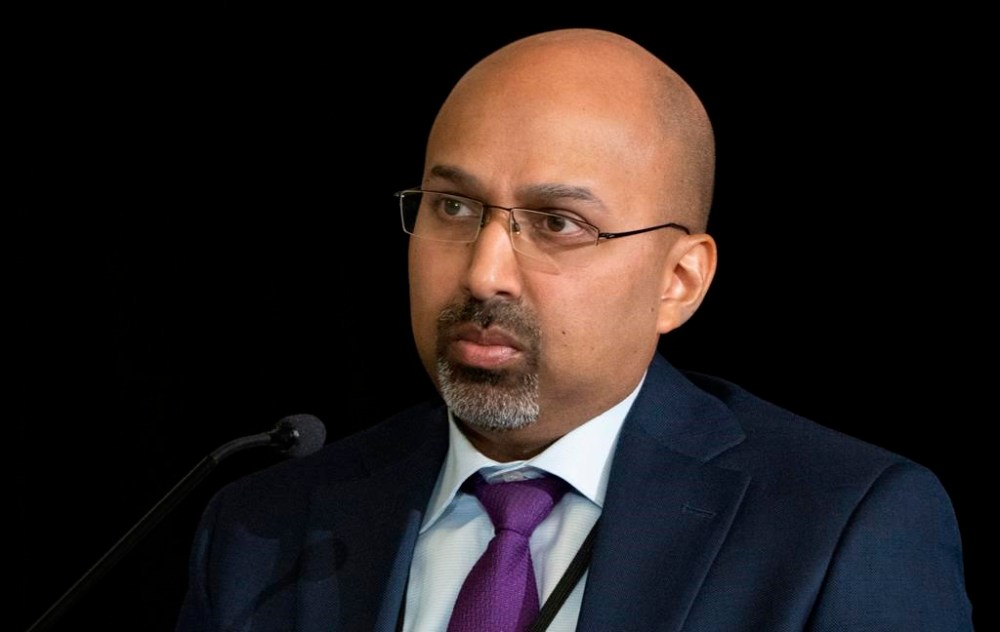Allowing a period of price declines would be ‘painful’ for Canadians: BoC official
Advertisement
Read this article for free:
or
Already have an account? Log in here »
To continue reading, please subscribe:
Monthly Digital Subscription
$0 for the first 4 weeks*
- Enjoy unlimited reading on winnipegfreepress.com
- Read the E-Edition, our digital replica newspaper
- Access News Break, our award-winning app
- Play interactive puzzles
*No charge for 4 weeks then price increases to the regular rate of $19.00 plus GST every four weeks. Offer available to new and qualified returning subscribers only. Cancel any time.
Monthly Digital Subscription
$4.75/week*
- Enjoy unlimited reading on winnipegfreepress.com
- Read the E-Edition, our digital replica newspaper
- Access News Break, our award-winning app
- Play interactive puzzles
*Billed as $19 plus GST every four weeks. Cancel any time.
To continue reading, please subscribe:
Add Free Press access to your Brandon Sun subscription for only an additional
$1 for the first 4 weeks*
*Your next subscription payment will increase by $1.00 and you will be charged $16.99 plus GST for four weeks. After four weeks, your payment will increase to $23.99 plus GST every four weeks.
Read unlimited articles for free today:
or
Already have an account? Log in here »
Hey there, time traveller!
This article was published 26/11/2024 (359 days ago), so information in it may no longer be current.
OTTAWA – Bank of Canada deputy governor Rhys Mendes says allowing for a period of price declines may sound tempting, but it would ultimately be more painful for Canadians.
Mendes made the comments in a speech Tuesday in Charlottetown on the importance of keeping inflation at the two per cent target.
His speech comes as the Bank of Canada declares victory on high inflation, but Canadians remain dissatisfied with higher prices across the economy.

“Even though it may seem counterintuitive — it would be painful for many Canadians if we were to try to bring about a period of price declines,” Mendes said in prepared remarks.
The deputy governor said the central bank would have to exert more pain on the economy with high interest rates to bring down prices, an outcome that would likely leave most people feeling worse off.
He said bringing a period of lower prices would also affect people’s expectations of inflation, which would make it harder for the central bank to stimulate spending in the case of an economic downturn.
Mendes said getting back to the two per cent target would also be more challenging because consumers expecting falling prices would continue to put off purchases, triggering lower prices from businesses, which would further incentivize delaying purchases.
“Escaping a deflationary cycle of this nature can be extremely difficult,” he said. “Keeping inflation at the two per cent target mitigates these risks.”
The Bank of Canada lowered its policy interest rate by half a percentage point last month in response to inflation falling to 1.6 per cent in September.
The inflation rate bounced back to two per cent in October and is expected to remain around target moving forward.
But the return to target doesn’t offer relief to Canadians struggling to keep up with the rising cost of living.
Mendes acknowledged that not everyone has seen their wages rise enough to compensate for higher costs, but said monetary policy is not well-suited to address those inequities.
The Liberal government has worn much of the political blame for higher prices, to the advantage of the federal Conservatives.
On Thursday, Prime Minister Justin Trudeau unveiled a plan to give a two-month GST break on a slew of items starting Dec. 14 to help with the affordability crunch.
The federal government is also sending out $250 cheques to Canadians who worked in 2023 and earned up to $150,000.
This report by The Canadian Press was first published Nov. 26, 2024.




